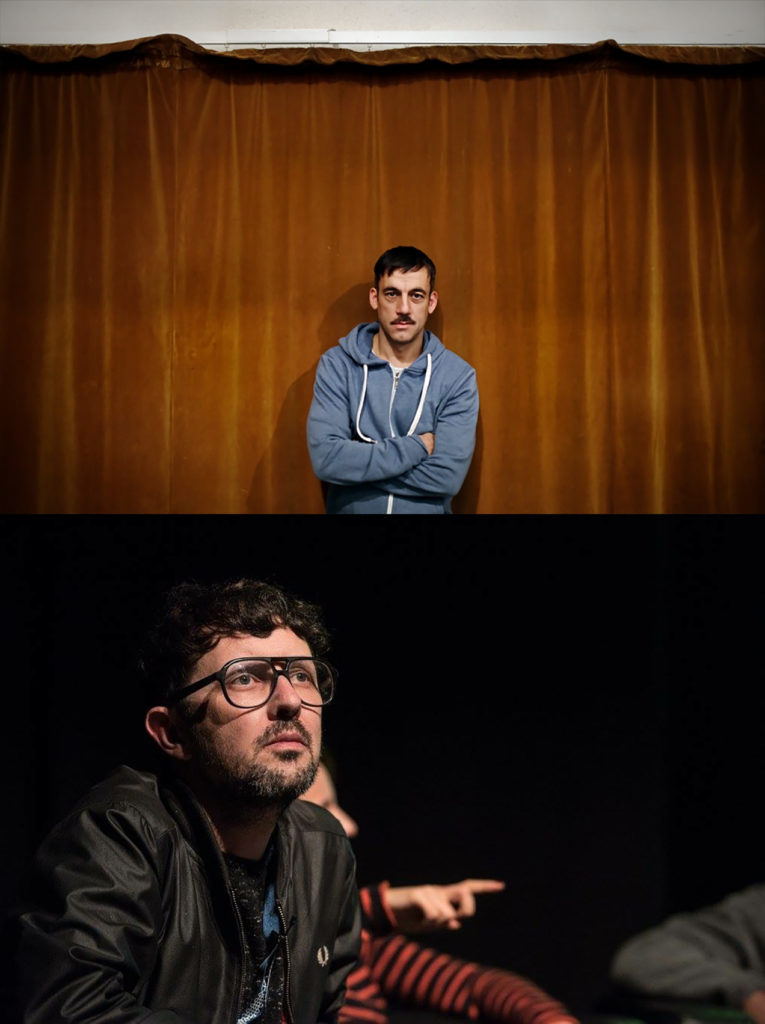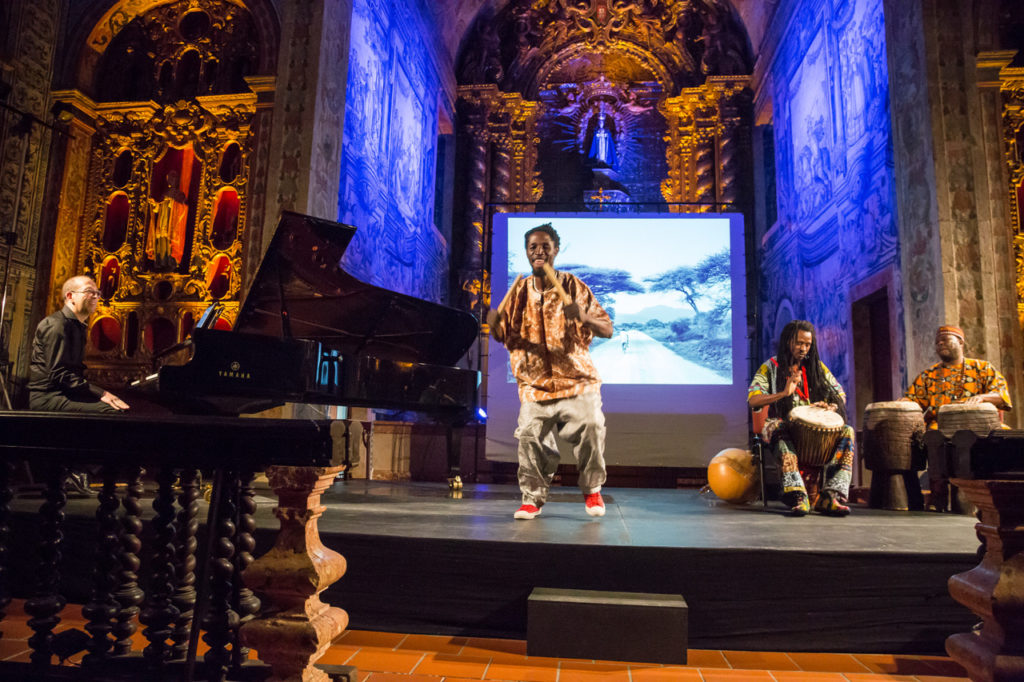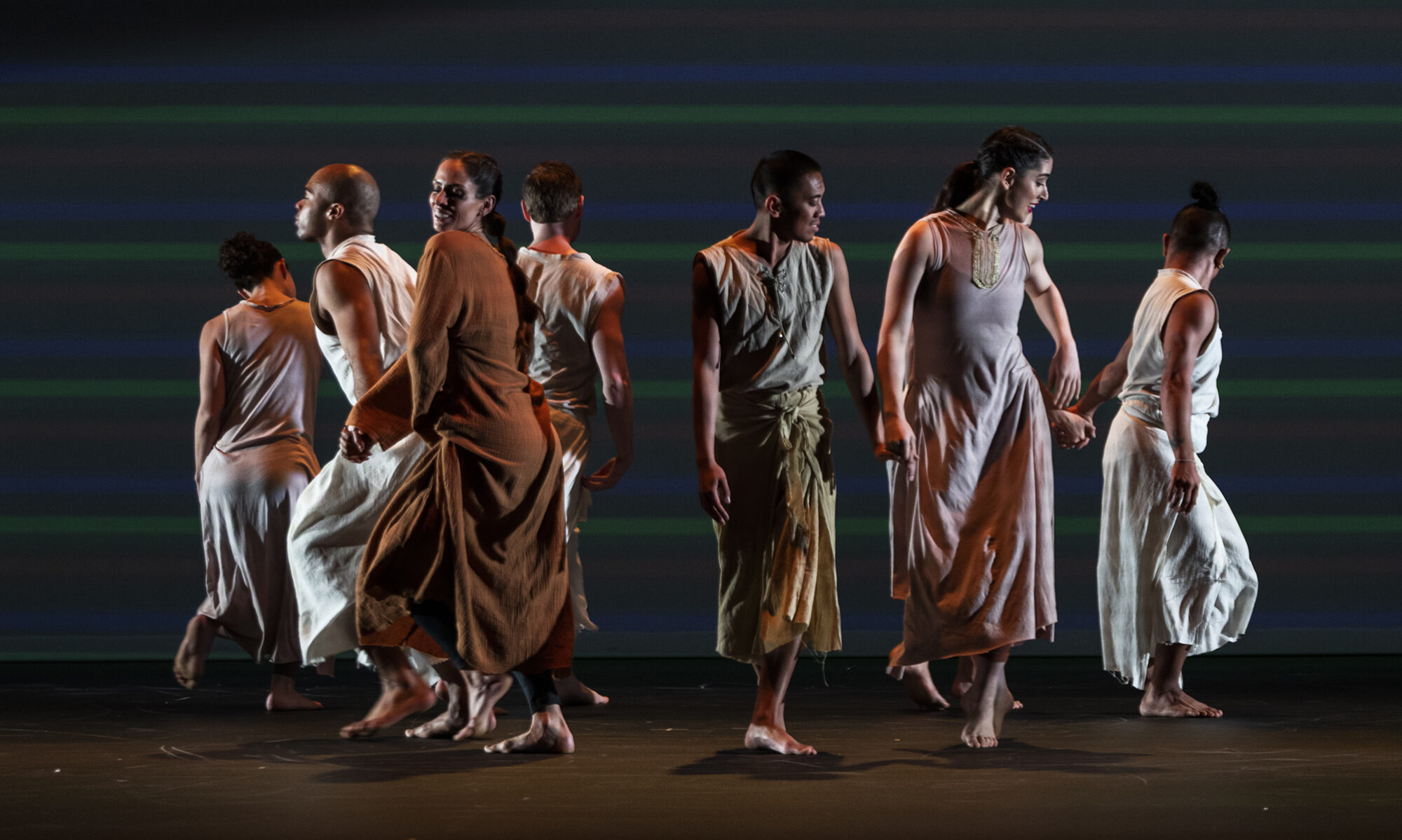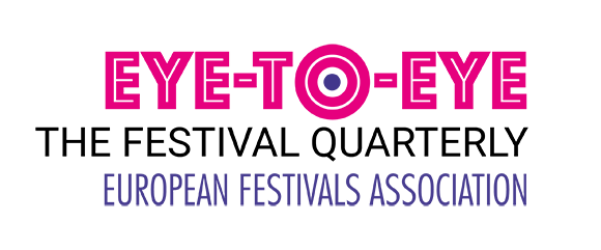Selling our souls to the devil

Jorge Andrade is the artistic director of the Portuguese company mala voadora. He directs, performs and writes the company’s shows. He collaborates with multiple artists from different areas, including Miguel Pereira, Victor Hugo Pontes, Alex Cassal, Third Angel, Chris Thorpe, Pablo Gisbert, Tim Etchells, Deborah Pearson or Kieran Hurley. He has presented performances all over Europe, Brazil, Cape Verde, USA and Lebanon. He coordinates the residency centre of the company and programmes its theatre space in Porto.
José Capela, architect, PhD earned with the dissertation Operating conceptually in art. Operating conceptually in architecture. He works as a teacher at University of Minho since 2000, where he currently lectures in architecture and theatre. He is also a researcher at Lab2PT. With Jorge Andrade, he is co-artistic director of mala voadora. He is responsible for the company’s stage designs. He is the author of the installation Windows, which represented Portugal at the 2019 Prague Quadrennial, and its respective catalogue, W : JC + JCD.
This is fiction. It’s a story about a fundraising process for a show at the Belém Cultural Centre, in Lisbon, and also about the possibility of radical realism. Or rather about two kinds of realism: (1) the kind of realism in which art finds itself taken over by life to a point where it merges with it, and (2) the realism of fundraising – one that requires art to sell, or, in other words, to lend itself to something that should not be of its concern.
We want this show to be a masterpiece. Nothing less. A truly wondrous show, an unpredictable creation, a magnificent event that makes it seem the world would not make sense without it happening and nothing will ever be as it was before it happened. A truly ground-breaking show.
But this is no easy task. One needs to work. Persistently. To attain a product of such high quality. Naturally, at first, we don’t know how to do it. One must find out. Only through hard work will we be able to find out something we know nothing about from the outset, and, since we need money in order to work, someone will have to invest in us: give us money so we can work on something that, from the outset, no one knows what it’s going to be.
We may be asking a lot, but there is no other way to go about it.
We don’t offer any guarantees that it will be good? But it’s not possible for us to offer them!
There’s one thing we can do: negotiate with what we have. If the Belém Cultural Centre co-produces us, let us profit from that fact. Benefiting from the complicity of the Belém Cultural Centre, we can offer things in exchange for financial support – for the sake of a masterpiece! Starting with the building, which is huge and has a lot to offer. Who would need a lot of space and see the Belém Cultural Centre as an opportunity? We can turn the Belém Cultural Centre into an air base and get support from the Army. It’s a matter of building the third module of Gregotti’s initial project and we can provide shelter to the military. It is well known that, in order to compensate for the austerity in which they are forced to live on a daily basis, the military like a little bit of debauchery in their leisure time; since the artists are known for being libertines, it all makes sense. You hear the noise of planes landing on the Belém Cultural Centre and the show includes sex scenes.
Yet another possibility is for us to become benefactors. Create a show with lots of social advantages. We can work with different communities. If our masterpiece gets its funding, why not? We shall waste no time filling our hearts with good intentions!
The National Health Service, for example. We can ask for its contribution and put on a show full of messages for the sake of public health. Against tobacco. Against alcohol. Against unprotected sex. Against deep fried food. Against sedentary lifestyles. We can bring the patients who are kept in hospital corridors due to lack of beds and use them as extras in the show, lying in comfortable beds. Ask the Ministry of Health for money, since the Ministry of Culture is underfunded. And the Ministry of Culture, since it is underfunded and cannot give us money, can contribute with the collaboration of the Dona Maria National Theatre or the São Carlos Opera House. And the Portuguese National Ballet. It can provide a spectacular show! A Gesamtkunstwerk from the time of well-intentioned art. Recovering Wagner’s grandiloquence for the underprivileged. We shall bring to the stage those we will help recover their health or find the good path of culture and make them part of Bellini’s Norma or the Swan Lake or Hamlet. Belém Cultural Centre’s bars can be assigned to small and medium-sized companies under the pretence of supporting them and, in return, they can provide food for the performers. The Portuguese Hospitality Institute can make their buildings available for artistic residencies (we could even create slogans on how to reside artistically). Public works can be dismantled to make the scenery.
Success is resounding. People don’t talk of anything else. The show becomes a media bombshell. It goes viral. The Portuguese National Television moves its studios to Belém Cultural Centre because no other news is more important. People in connection to the show start being murdered by protest groups, or else kidnapped to serve as a bargaining chip so that the kidnapper gets a role in it. Courts move into the show to uphold the law. The police also want to be a part of it, because in the meantime it has already become common knowledge that anyone who is not part of this artistic project will not have a place in the country. Prisoners will have to go with the police so they can be watched over. Gradually, the entire State Budget is absorbed by this artistic project, which ends up becoming a general representation of the country.
There is nothing else we can do to obtain funds for our masterpiece: a truly social spectacle, addressing themes that relate to the concept of a public service, to people’s lives and the way people live in their community, to people’s habits, values, references and memories. And to what is said on the news. A documental, anthropological art; an art of sociology as updated as a newscast, regarding which many positive things can be said during the season’s cultural programming launch sessions; in event programmes and booklets; in essays on cultural policy. An art that leads people back to the right path in terms of cultural interests.
An art that became real. That is about what already exists, as if we didn’t know that art serves to invent what does not yet exist.
This the story of us selling our souls. Like Faust.
Festival Life creates shared moments of audiences and artists, eye-to-eye


